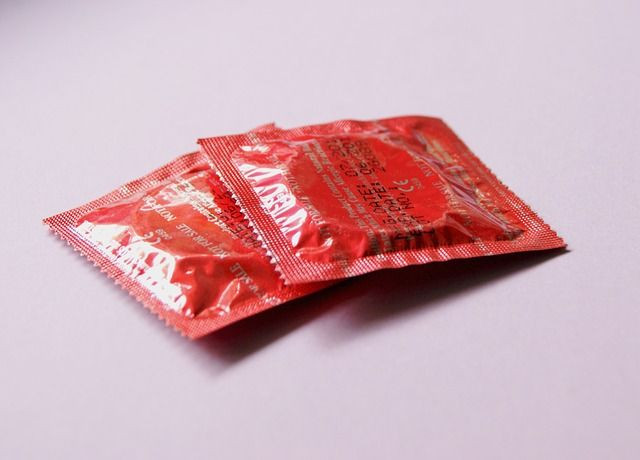Male Birth Control? Fruit-Based Compound Could Block Fertilization, Provide ‘Unisex’ Contraceptive

Efforts to create a new contraceptive for men, beyond condoms, have fallen short so far, for various reasons, but research suggests a new contender in the race to create a male “birth control pill” after scientists discovered that two chemicals found in plants were effective at preventing sperm from fertilizing an egg.
The study, now published online in PNAS, found that pristimerin, which comes from a plant, and lupeol, a compound which can be found in plants and fruits such as mangoes, can help block the fertilization of an egg by “averting sperm hyperactivation, The Independent reported. As a result, the combination of these two compounds may be effective as a hormone-free alternative to birth control. What’s more, the birth control would be unisex, and would be equally effective if taken by men or women.
“If we think of sperm as a delivery man, it doesn’t matter if his truck breaks down when he is still at the post office or is en route – he still can’t deliver his package,” study author Melissa Miller explained to Broadly.
Read: Condom-Free Birth Control Shot For Men May Be More Effective Than Other Methods
Fertilization is a complicated process, but on the male side of the act a calcium channel of sperm called CatSper is essential for male fertility. This calcium channel is activated by the progesterone hormone, The Independent reported. The plant-compound combination works to block progesterone from activating CatSper, thus making fertilization impossible. According to the team, the compounds have no other effect on the egg or the sperm other than preventing the two from meeting up, so there would be no long-term effects on fertility.
“Because these two plant compounds block fertilisation at very, very low concentrations, they could be a generation of emergency contraceptives we nicknamed ‘molecular condoms,’” study author Polina Lishko told The Independent. “If one can use a plant-derived, non-toxic, non-hormonal compound in lesser concentration to prevent fertilisation in the first place, it could potentially be a better option.”
Right now, hormonal birth control is a popular choice for long-term birth control and the only choice for emergency contraceptives. While these drugs are safe and effective, they are not without side effects. According to the Mayo Clinic, the most common side effect of the morning after pill include, nausea or vomiting, dizziness, fatigue, headaches, breast tenderness, bleeding between periods, and lower abdominal pain or cramps.
Other recent efforts into finding a more long term, non-permanent male birth control option include using synthetic hormones to temporarily block the effects of testosterone so the testicles stop producing healthy sperm cells. While these efforts were successful in reducing sperm count low enough to prevent pregnancies, the drug still has a number of adverse side effects.
Source: Mannowetz N, Miller MR, Lishko PV. Regulation of the sperm calcium channel CatSper by endogenous steroids and plant triterpenoids. PNAS . 2017
See Also:
Scientists Get Closer To An Effective Male Birth Control Pill; New Compounds Show Promise
Male Birth Control, Like Vasalgel, Is Closer To Becoming A Reality; Here's Everything We Know So Far
Published by Medicaldaily.com



























